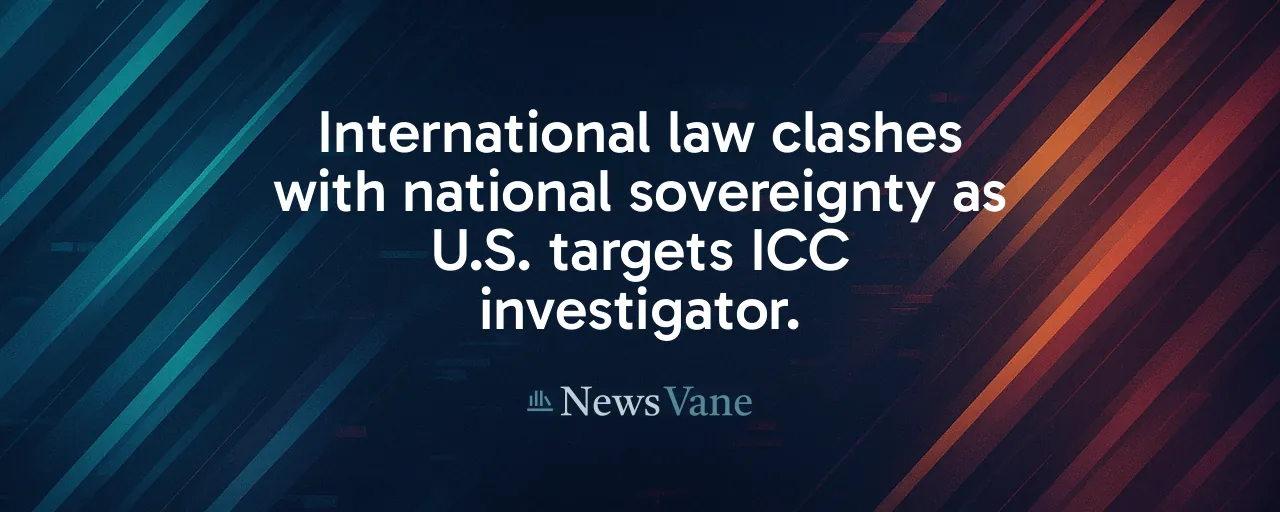A Bold Move Ignites Global Tensions
On July 9, 2025, U.S. Secretary of State Marco Rubio announced sanctions against Francesca Albanese, a United Nations Human Rights Council Special Rapporteur tasked with examining human rights in Palestinian territories occupied since 1967. The decision, grounded in an executive order signed by President Donald Trump, targets Albanese for her engagement with the International Criminal Court (ICC) in efforts to investigate U.S. and Israeli nationals. This action has unleashed a firestorm of debate concerning Albanese's role and the broader clash between national sovereignty and international justice.
The sanctions stem from Albanese's alleged attempts to push the ICC to issue arrest warrants for Israeli officials, including Prime Minister Benjamin Netanyahu, and to investigate American companies. Rubio's statement condemned her actions as a violation of U.S. and Israeli sovereignty, since neither nation is a party to the ICC's Rome Statute. This move raises a critical question: how can the world balance the pursuit of human rights with respect for individual nations' autonomy? The answer lies in fostering clearer global legal frameworks, rather than relying on sanctions or accusations.
The Heart of the Dispute
At its core, this controversy hinges on the tension between international law and national interests. The ICC, established to prosecute war crimes and genocide, often finds itself at odds with powerful nations. Albanese's role as a UN rapporteur involves reporting on human rights abuses, but her critics argue she has overstepped by advocating for ICC actions against non-member states. Supporters, however, see her work as a vital push for accountability in regions marked by conflict.
Historical context sheds light on this divide. The U.S. has long resisted ICC jurisdiction, citing concerns over its own sovereignty. In 2020, Trump's administration sanctioned ICC officials probing U.S. actions in Afghanistan, a precedent echoed in Rubio's recent decision. Meanwhile, UN reports, including those from Albanese, highlight ongoing human rights challenges in Palestinian territories, fueling calls for global intervention. Both sides have valid concerns: nations fear overreach, while human rights advocates demand justice for victims.
Why Sovereignty Matters
Sovereignty, the right of nations to govern themselves without external interference, is a cornerstone of international relations. The U.S. and Israel argue that ICC investigations, backed by officials like Albanese, undermine this principle. Neither country recognizes the ICC's authority, viewing its actions as politically motivated. This perspective resonates with many nations wary of international bodies encroaching on their autonomy.
Sovereignty, however, cannot be an absolute shield. Human rights violations, documented extensively by UN bodies, warrant scrutiny. Reports from 2024 and 2025 detail severe abuses in conflict zones, urging global action. The challenge is crafting a system where nations respect each other's rights while addressing atrocities. Sanctions, like those on Albanese, risk escalating tensions rather than resolving them, pushing the world further from consensus.
The Case for Global Justice
On the other side, advocates for international justice argue that human rights transcend borders. Albanese's reports, including one from October 2024, describe systemic abuses in Palestinian territories and advocate for accountability. Her engagement with the ICC reflects a broader push to hold powerful actors responsible, regardless of their status. Civil society groups, such as those in the Coalition for the ICC, condemn sanctions against UN officials, arguing they stifle efforts to address atrocities.
Historical examples bolster this view. The Nuremberg Trials after World War II established that individuals could face justice for war crimes, a principle extending beyond state accountability. Today's ICC continues that legacy, though its reach remains limited by non-member states like the U.S. and Israel. The friction between these principles, justice versus autonomy, defines the current debate, with no easy resolution in sight.
A Path Through the Storm
Resolving this conflict involves moving beyond sanctions and rhetoric. One solution lies in strengthening dialogue between nations and international bodies. The U.S. could engage with the ICC to clarify jurisdictional boundaries, ensuring investigations respect sovereignty while addressing human rights. Similarly, UN rapporteurs like Albanese could focus on transparent reporting, avoiding actions perceived as targeting specific nations.
Another step involves reforming global legal frameworks. Clearer rules on ICC jurisdiction, agreed upon by member and non-member states, could reduce mistrust. Past efforts, like the 1998 Rome Statute negotiations, show that consensus is possible, though difficult. These solutions prioritize cooperation over confrontation, aiming to balance justice and autonomy without alienating key players.
Looking Ahead
The sanctions on Albanese mark a pivotal moment in the struggle to define global justice. They highlight the deep divides between nations guarding their sovereignty and advocates seeking accountability. Both sides share a common goal: a world where rights and laws are respected. Achieving that vision involves compromise, rather than escalation.
Dialogue and reform offer a way forward. By clarifying the roles of international courts and respecting national boundaries, the global community can build trust. Collaboration among the U.S., Israel, and the UN is essential to create a system that upholds human rights without sparking diplomatic crises.
This debate is far from over. As tensions simmer, the choices made today will shape the future of international law. The path ahead calls for courage, clarity, and a commitment to finding common ground. The stakes, justice, sovereignty, and global stability, are too high to settle for anything less.
